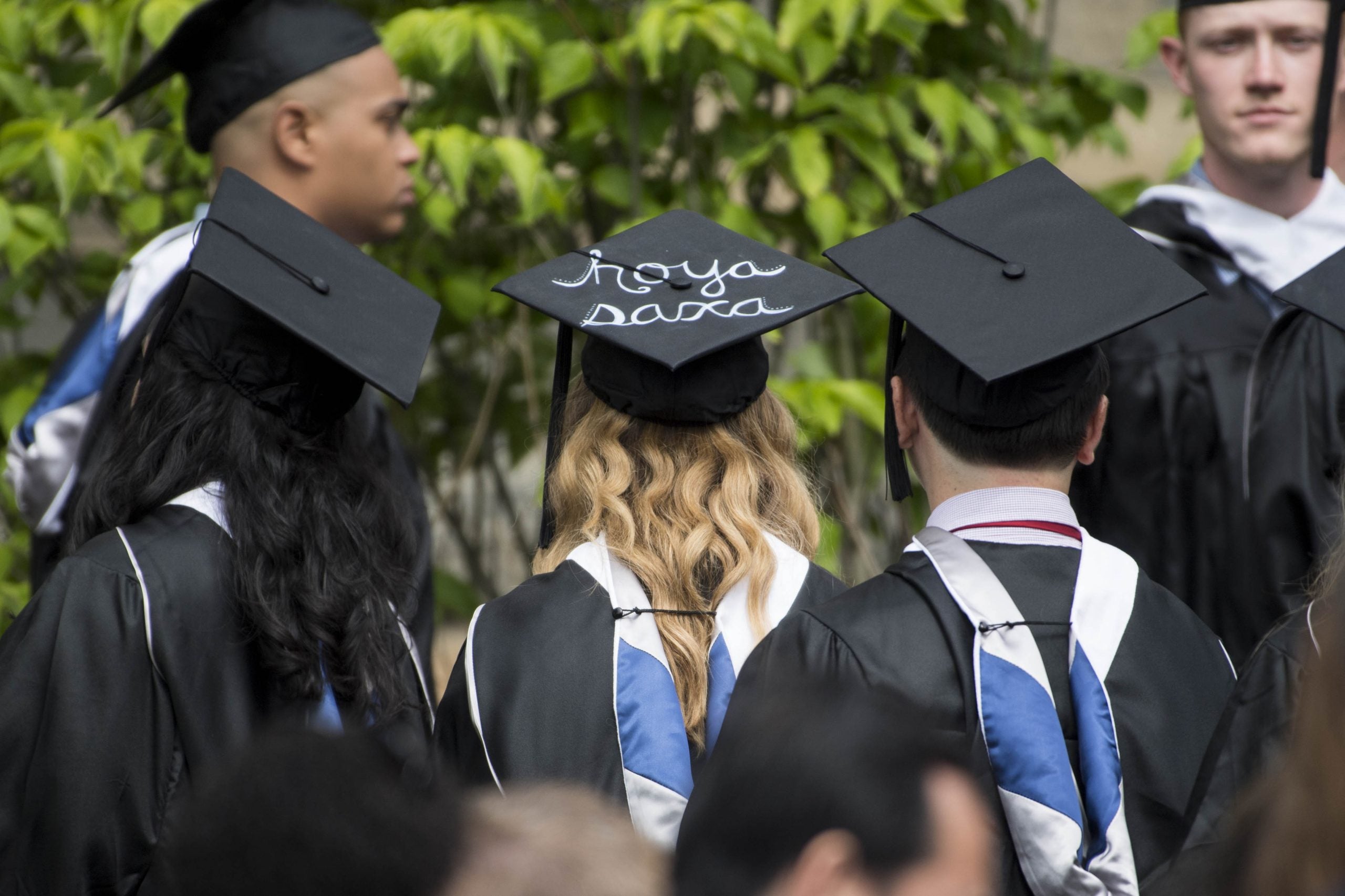Georgetown approves new undergraduate degree in public policy
A preview of the new A.B. in Public Policy degree, to be jointly offered by the McCourt School of Public Policy and Georgetown College of Arts & Sciences.
The first cohort of Georgetown students will be able to start earning their undergraduate degree in public policy in the fall of 2023. A joint degree between Georgetown University’s College of Arts & Sciences and McCourt School of Public Policy, this new program is the result of several years of research, planning and discussions.
“Georgetown attracts a large number of undergrad students interested in the substance of what we do at McCourt as a public policy school,” said James Habyarimana, professor at the McCourt School and faculty director for the undergraduate program, who also notes that government, economics and foreign studies represent some of the most popular majors. “This undergraduate degree provides, in one place, a set of coherent tools that we know Georgetown students are interested in.”
Elena Damaskos, director of strategic initiatives at McCourt, has been working with Habyarimana and a faculty committee to ensure that the program, which will straddle two campuses, takes advantage of its unique structure to deliver a compelling curriculum and robust student experience. Students majoring in public policy will take classes on the Hilltop for their first two years and then move downtown to the Capitol Campus — which includes a new building under construction for the McCourt School — for their junior and senior years. This will put students in the right place for internships and other public policy work experiences. “Students who want to study public policy will want to be exposed to everything that is downtown,” said Damaskos.
This program will attract students who are interested in solving big, complex issues related to public policy and want the opportunity to test it out while they are still in school.
Elena Damaskos
Ultimately, undergraduate students in the program can focus broadly on public policy, or concentrate on one of four areas: energy, climate change and environment; international development; domestic/social policy and political institutions.
“We are excited to offer an interdisciplinary pathway for students interested in public policy that not only tackles big questions but equips undergraduates with the dynamic tools answering them requires,” said Rosario Ceballo, dean of the College of Arts & Sciences. “This joint degree will take advantage of strengths across the university, empowering the next generation of Hoya problem solvers and policymakers.”
“Students are drawn to Georgetown for many reasons, but two that applicants often cite are our location in Washington, DC, and our Jesuit emphasis on service,” said Sue Lorenson, vice dean for undergraduate education in the College of Arts & Sciences. “This new degree perfectly marries those interests; students will have the opportunity to live, learn and work among DC’s nonprofit and governmental institutions while they study how public policy serves the greater good, by addressing things like health care access, voting policies and environmental regulation.”
Requirements for the new undergraduate degree
Students interested in the major will first take a “gateway” course on the Hilltop, Habyarimana said, “to introduce them to the theoretical and empirical tools used in public policy.” The course is team-taught, led by two dynamic faculty members, with every lecture drawing on a faculty member from the McCourt School. Upon moving downtown, juniors will take core classes in policy process, public economics, data analysis for public policy, and public policy administration.
There’s also a skills requirement, which involves taking classes in areas like data visualization, data science, geographical information systems or advanced policy evaluation methods. “We’ll have a suite of five or six skills classes and students will have to take at least two of them,” said Habyarimana. “This will give our students a rich set of policy tools that will serve them well in the labor market.”
The signature element of the degree is the experiential component, which requires students to have an internship or other similar real-world experience for at least one semester. “We’ll help students secure these opportunities,” said Damaskos, which could range from federal or city government to international policy to working as a Congressional staffer or with an NGO.
The Georgetown University Board of Directors approved the program in February of 2023. Although there are still logistical challenges to overcome, being in the heart of DC will set the program apart. As Damaskos said, “this program will attract students who are interested in solving big, complex issues related to public policy and want the opportunity to test it out while they are still in school.”
- Tagged
- McCourt School News
